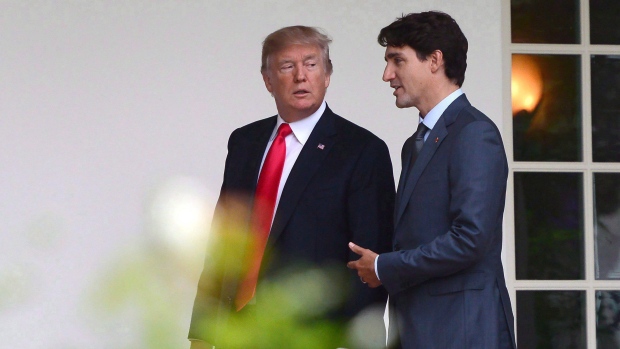Aug 13, 2018
Canada must take a 'bit of pain upfront' and make NAFTA concessions: Strategist

Canada will need to make concessions in order to clinch a new NAFTA deal, as the country faces tense relations with U.S. President Donald Trump and finds itself frozen out of trade talks with the U.S. and Mexico, according to Dynamic Funds’ chief investment strategist.
The Canadian government is currently in a “difficult position” without much bargaining power, Myles Zyblock said in an interview with BNN Bloomberg Monday.
“It looks like it’s moving along with Mexico and we’re standing alone, and I don’t think that’s really a good place to be at this point – especially given that the U.S. really does drive the bus here,” Zyblock said.
“Canada just has to give in to some concessions,” he added. “And having some concessions and taking a little bit of pain perhaps upfront is better than a long string of pain economically if [the Canadian government] digs their heels in.”
Trump said in a tweet late Friday a new NAFTA deal with Mexico is “coming along nicely,” but that Canada “must wait.” Trump also made a direct threat to slap a tax on automotive exports from Canada.
Zyblock said that while he understands the opposition from the Canadian government and business leaders to the U.S. proposal for a sunset clause on NAFTA, reaching a deal is ultimately more important for the economy.
“At the end of the day, do you want some sort of agreement? If you want some sort of agreement then the cost is that this sunset clause should probably come in,” he said.
Trump’s latest stance on NAFTA talks contrast with comments made by David MacNaughton, Canada’s ambassador to the U.S., last week. MacNaughton said in an interview with BNN Bloomberg that a trilateral deal was within reach, adding that Canada was prepared to “show some flexibility” in the talks but still opposes a sunset clause.


